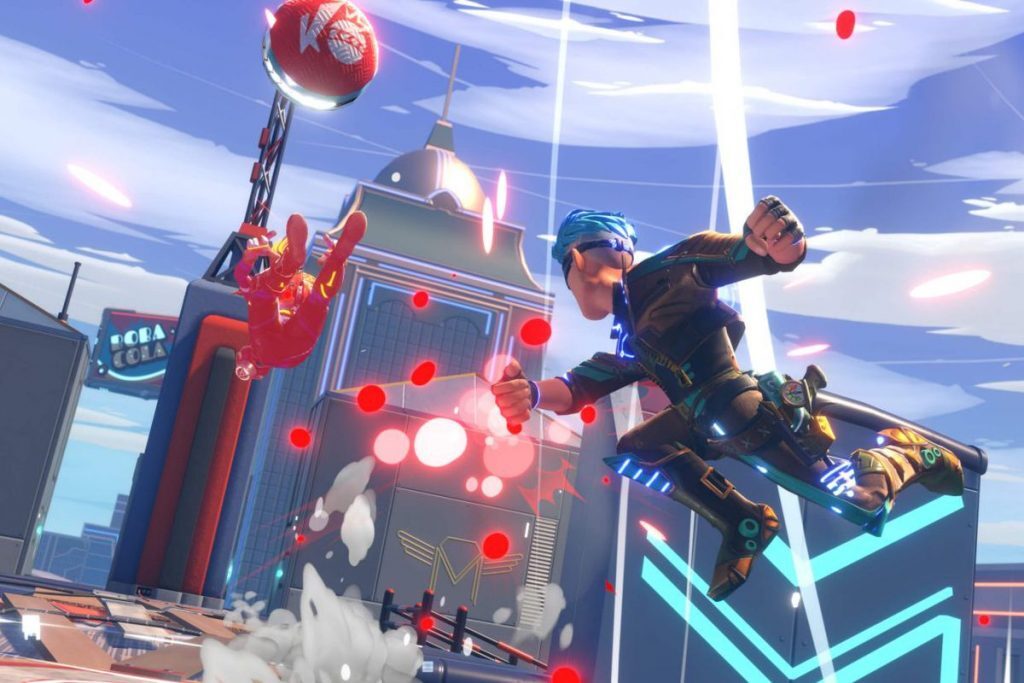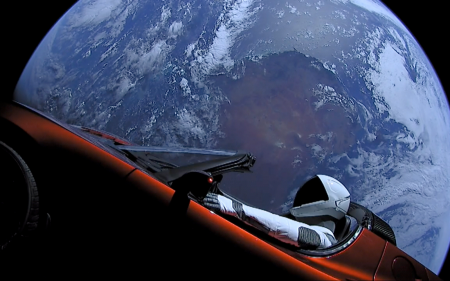If you’ve been casting an eye-out in the gaming press recently, you’ll probably have noticed mentions of a game called Knockout City doing the rounds.
It’s the sort of coverage that developers and publishers enjoy the most; not only is the game reviewing pretty well – it’s currently sitting at an overall score of 8.0 (consoles) on Metacritic – it’s become the subject of think-pieces, previews, review diaries and the like.
Lots of people have lots of positive things to say about it. So, what’s all the fuss about?
Knockout City’s Day-Glo Dodgeball
Everyone remembers dodgeball, right? You know, it was PE and the teacher had the most popular kids pick sides of mates, you squared off and then threw volleyballs (or basketballs) at each other. Players were eliminated by getting hit by a ball. They could also eliminate players and bring teammates back on the pitch by catching a ball thrown by an opponent.
Hell, if you’re still in the dark, let Patches O’Houlihan explain it to you.
If you haven’t played it yet – and I wasn’t about to before it became available on Xbox Game Pass – Knockout City is dodge ball on steroids, with the cartoon veneer of family-friendly fare like Splatoon.
It’s a pretty canny design; it’s basically a kid-friendly third-person-shooter – which appeals to players of all ages – that’s shot through with visuals that won’t unnerve overly-concerned parents. But it offers more than the satisfaction of whacking opponents in the head with a ball. Dodgeball is simply the foundation upon which Knockout City builds an impressive set of mechanics.
First off, players don’t have to have the reflexes of the CS:GO elite to make a hit; unless you’re facing in the wrong direction, the ball will head towards your target, even if it curves a little. If this sounds unfair, bear in mind opponents can easily catch projectiles tossed their way if they time things right. Players can charge up throws, fake throws and even knock opponents over. If you’re without a ball either you or a teammate can roll yourself up and be thrown at will.
All the games take place on maps that mirror the cartoon-like design of the characters, throughout which are items to keep players on the move such as glowing circles that boost jumps and pipes they can zip through. Players have double-jumps, a hang-glider to slow descents and dashes to knock over opponents.
Depending on which mode of match they’re playing they win by being part of the team to score 10 points first or the team that collects the most diamonds dropped by hit opponents. There’s even a mode in which all the balls have their own special aspects – bomb balls that explode and cage balls that roll up opponents, for example. It’s all a lot of rambunctious fun.
Is the price right?
Like Fortnite – a game this one closely resembles visually – there are rotating seasons, contract missions and an in-game store whose content changes quite a lot. Players can form Crews with their mates and customise pretty much every aspect of that. Players can also grind and level up, unlocking myriad cosmetics – clothes, hairstyles, dance moves and the like – or they can spend cash. However, instead of buying loot boxes, players can just head to the store and pick out what they like.
In other words, the main puzzling aspect about Knockout City is that it bears all the hallmarks of a game that feels like it should be Free-To-Play – but it isn’t. Well, kind of. You can play the game for free until level 25 – a recent tweak developer Vela has made – but this only happened very recently.
To get the game to own, you’re looking at an outlay of $19.99 (R349.00 locally and yes, I know that makes it more expensive to buy in this region over and above the lousy rand/dollar exchange rate). It’s worth investigating, however, and while it’s free (for now) I’d urge players to give it a try. At the very least it’s a fun few hours of shooting with no bloodshed.
- Knockout City is available on PC, PS4, PS5, Xbox One, Xbox Series X / S, and Nintendo Switch.
- The game was played on an Xbox Series X using the author’s Game Pass subscription. Which he pays for.




